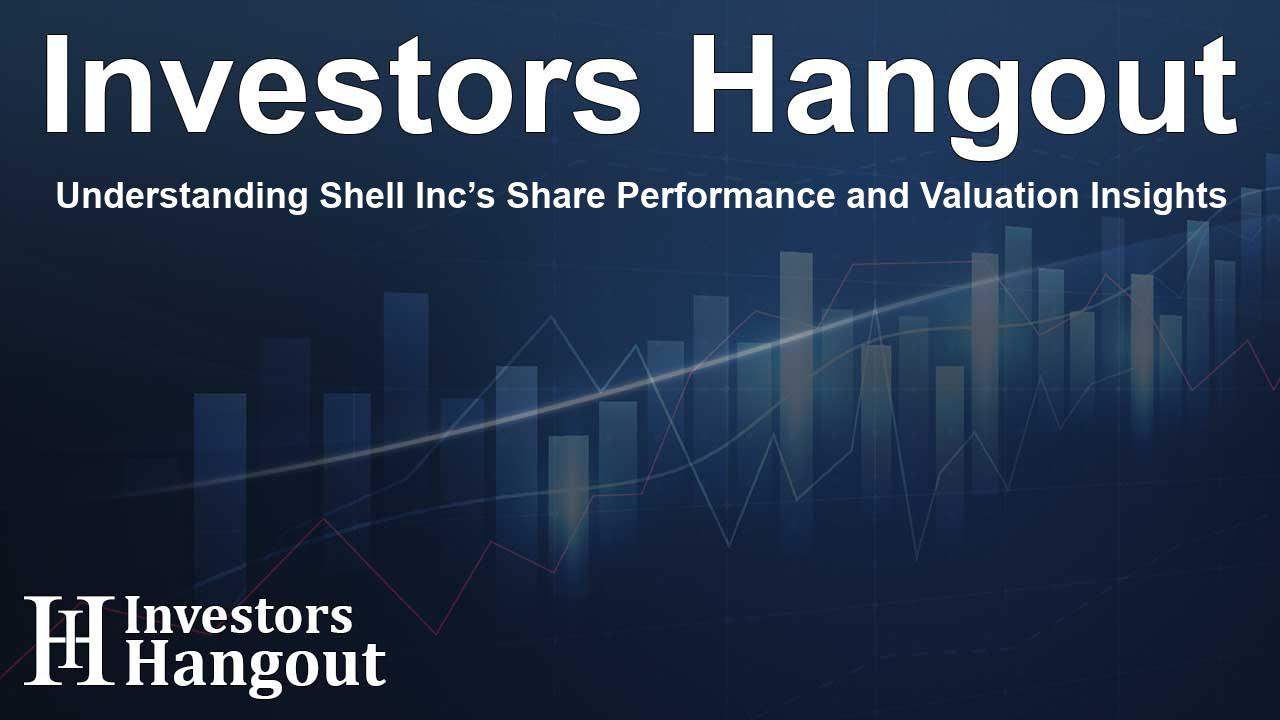Understanding Shell Inc’s Share Performance and Valuation Insights

Exploring Shell Inc.'s Current Stock Performance
At present, Shell Inc. is trading at $72.79, reflecting a modest increase of 0.54%. Over the past month, the stock has seen a rise of 1.48% and in the past year, it has increased by 2.02%. This performance has inspired optimism among long-term shareholders, although many investors are examining the price-to-earnings (P/E) ratio to ascertain if the stock is potentially overvalued.
What is the Price-to-Earnings Ratio?
The price-to-earnings (P/E) ratio is a pivotal metric that compares the current share price to the company's earnings per share (EPS). Long-term investors typically utilize this ratio to analyze how the company is performing relative to its historical performance, sector averages, or broader market indices like the S&P 500. A higher P/E suggests that investors expect better future performance from the company, possibly indicating that the stock may seem overvalued but could also reflect a willingness to pay more based on anticipated future earnings growth.
Shell's P/E Ratio in Context
Currently, Shell exhibits a P/E ratio that is lower than the average industry P/E of 24.77 for the Oil, Gas & Consumable Fuels sector. While this could lead to assumptions that Shell might not perform as well as its peers, it is entirely feasible that the stock is undervalued. Investors often interpret such discrepancies as opportunities for investment.
Understanding the Implications of a Low P/E Ratio
Despite its potential advantages, relying solely on the P/E ratio has its drawbacks. A lower P/E could also denote that shareholders harbor reduced expectations for future growth. Thus, it’s crucial not to view the P/E ratio in isolation. Other factors, including industry trends and economic cycles, can significantly influence a company’s stock price. To make prudent investment decisions, investors should pair P/E analysis with additional financial evaluations and qualitative assessments.
Conclusion: A Holistic Approach to Stock Evaluation
In summary, while the P/E ratio serves as a useful tool for appraising a company's market performance, understanding its limitations is vital. A low P/E might indicate undervaluation, but it may also signal restrained expectations for growth. Investors should leverage this ratio alongside other essential financial metrics and market analyses to foster informed investment choices. Embracing a comprehensive evaluation strategy will enhance the prospects for successful investing.
Frequently Asked Questions
What is the current P/E ratio of Shell Inc.?
The current P/E ratio of Shell Inc. is lower than the industry average of 24.77.
How has Shell's stock performed over the last month?
Shell's stock has increased by 1.48% over the past month.
Why is the P/E ratio important for investors?
The P/E ratio helps investors assess the valuation of a stock compared to earnings, indicating potential growth expectations.
What does it mean if Shell has a lower P/E ratio than its competitors?
A lower P/E ratio may suggest Shell is undervalued or that investors expect slower growth compared to competitors.
Should investors rely solely on the P/E ratio for making investment decisions?
No, investors should consider the P/E ratio alongside other financial metrics and market conditions for well-rounded analysis.
About The Author
Contact Dylan Bailey privately here. Or send an email with ATTN: Dylan Bailey as the subject to contact@investorshangout.com.
About Investors Hangout
Investors Hangout is a leading online stock forum for financial discussion and learning, offering a wide range of free tools and resources. It draws in traders of all levels, who exchange market knowledge, investigate trading tactics, and keep an eye on industry developments in real time. Featuring financial articles, stock message boards, quotes, charts, company profiles, and live news updates. Through cooperative learning and a wealth of informational resources, it helps users from novices creating their first portfolios to experts honing their techniques. Join Investors Hangout today: https://investorshangout.com/
The content of this article is based on factual, publicly available information and does not represent legal, financial, or investment advice. Investors Hangout does not offer financial advice, and the author is not a licensed financial advisor. Consult a qualified advisor before making any financial or investment decisions based on this article. This article should not be considered advice to purchase, sell, or hold any securities or other investments. If any of the material provided here is inaccurate, please contact us for corrections.
